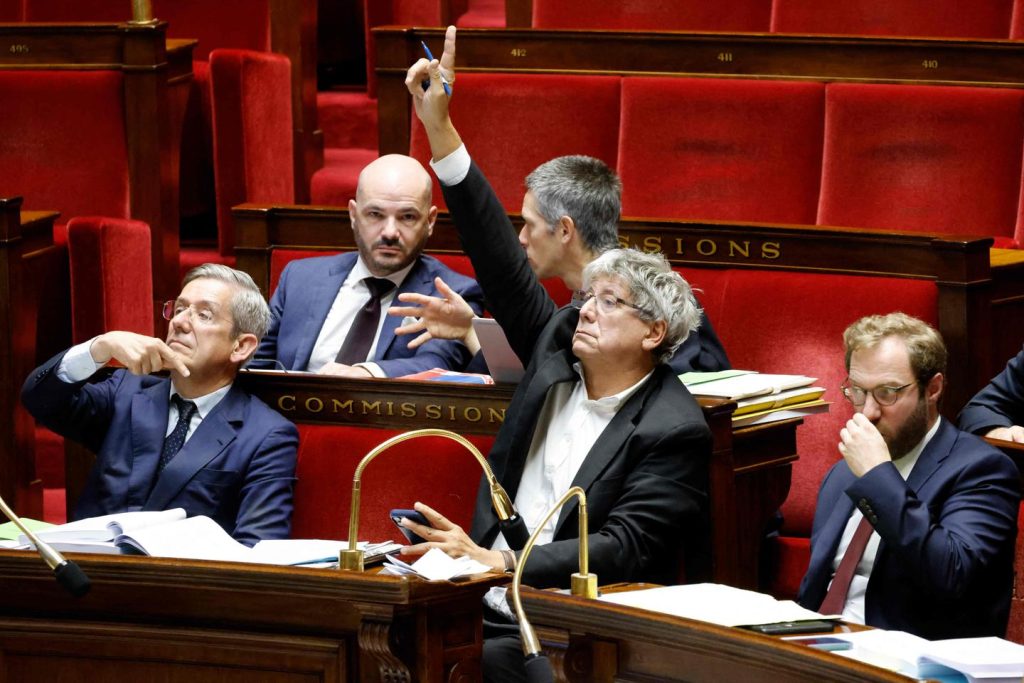The general rapporteur of the budget, Charles de Courson, the president of the finance committee of the National Assembly, Eric Coquerel, and the Minister of the Economy, Antoine Armand, were seen at the National Assembly in Paris on October 22, 2024. An ultimatum was issued when the president of the National Assembly, Yaël Braun-Pivet, addressed Prime Minister Michel Barnier after presiding over debates on the tax aspect of the 2025 budget. She expressed the need to know the direction the Prime Minister wishes to take with the budget revenues, given the ongoing debates in the Assembly.
Despite a week of debates, the 3,650 amendments submitted for the first reading of the revenue section of the 2025 budget have not been fully addressed. As of midnight on Sunday, October 27, nearly 1,500 amendments remain unexamined as the members left the chamber. The examination of these hundreds of amendments had an impact on the initial schedule, with discussions set to resume on November 5 after the examination of the Social Security budget, delaying debates on the expenditure aspect of the budget.
Over the past six days, discussions have been confused and tense, with parliamentary factions opposing each other and occasionally uniting against the Minister of Public Accounts, Laurent Saint-Martin, to dissect the Barnier budget. The increase in taxation through 201 amendments passed by the deputies amounts to 40 billion euros in revenue, in addition to the 20 billion euros in tax increases promised by the government for 2025. These amendments were adopted in tight votes, with the National Rally (RN) contributing crucial votes in some cases.
The New Popular Front (NFP) is pleased to have secured more amendments than the central bloc, claiming an ideological victory. However, the RN has expressed dissatisfaction with the debate conditions and announced their intention to vote against the revenue section of the budget. They criticized Prime Minister Barnier for his perceived lack of negotiation and attempt to exhaust Parliament, condemning the obstruction from within his own camp. Overall, the parliamentary process has been marked by strategic alliances and contentious debates surrounding fiscal policy changes.
The ongoing debates in the National Assembly highlight the challenges faced by the government in navigating budgetary decisions amidst opposition and pressure from various political factions. The complexity of the legislative process and the need for consensus on key financial matters contribute to the intensity of the discussions. As the discussions continue, it remains to be seen how the government will address the concerns raised by deputies and whether compromises can be reached to secure the passage of the budget. The outcome of these debates will have significant implications for the fiscal stability and economic trajectory of the country.


